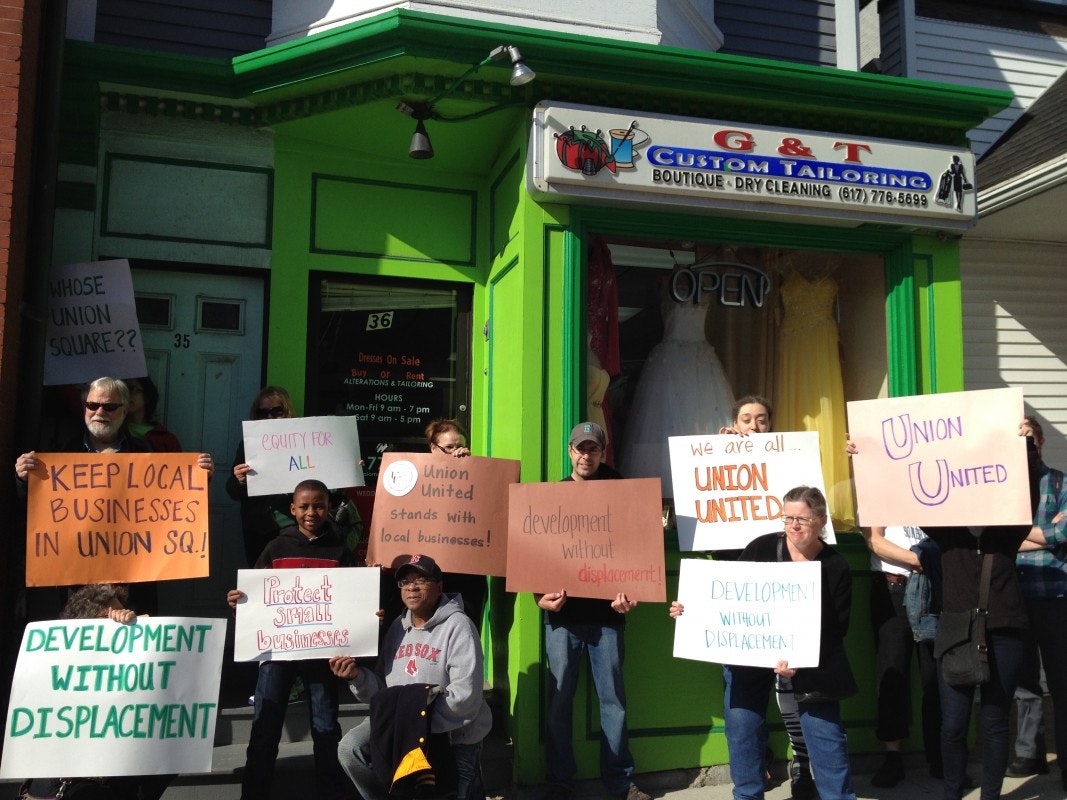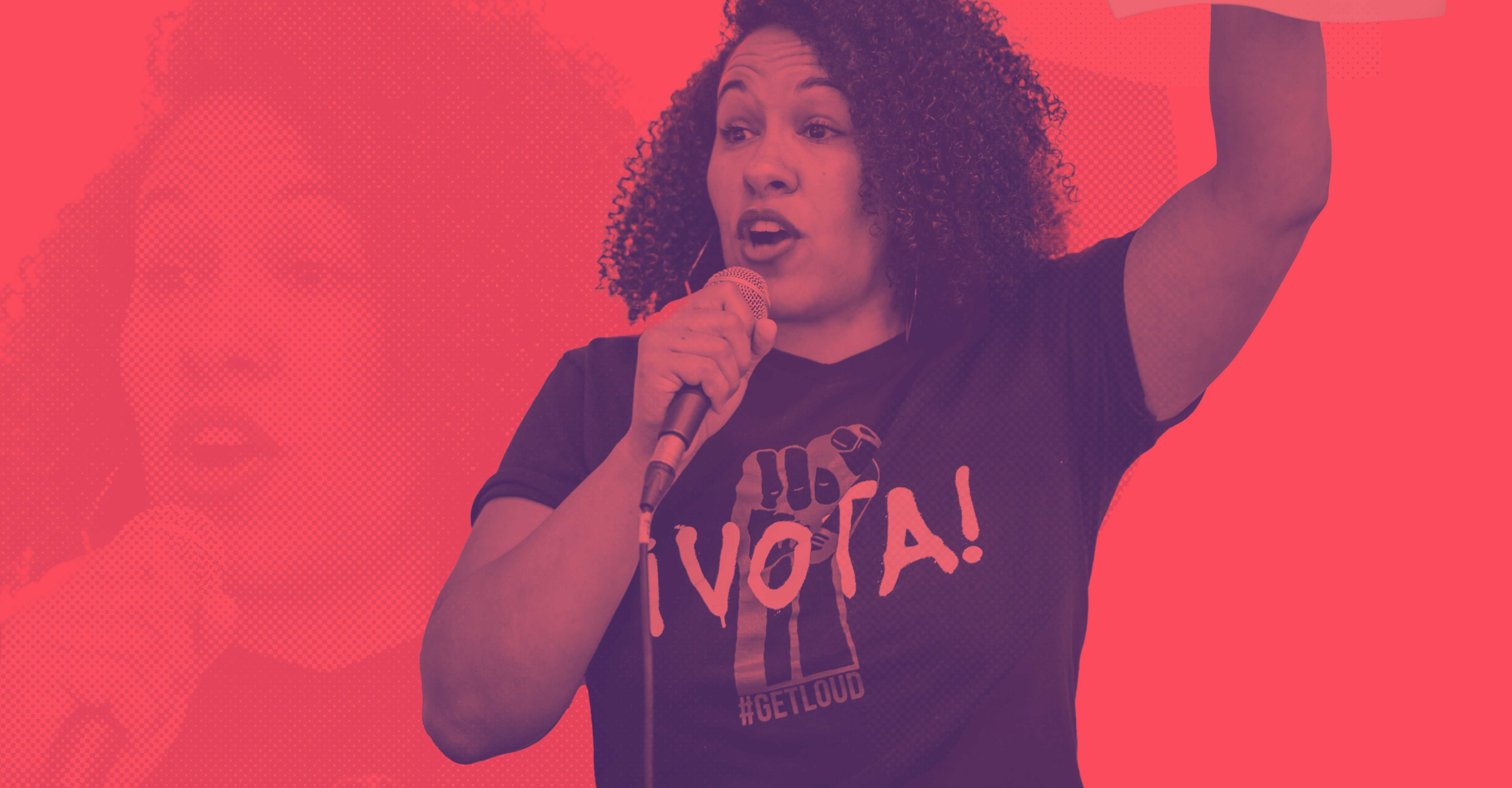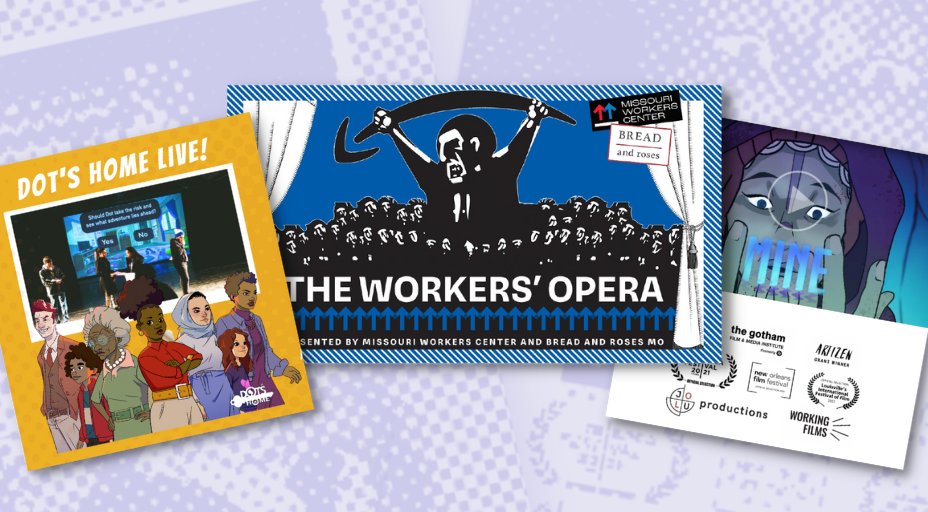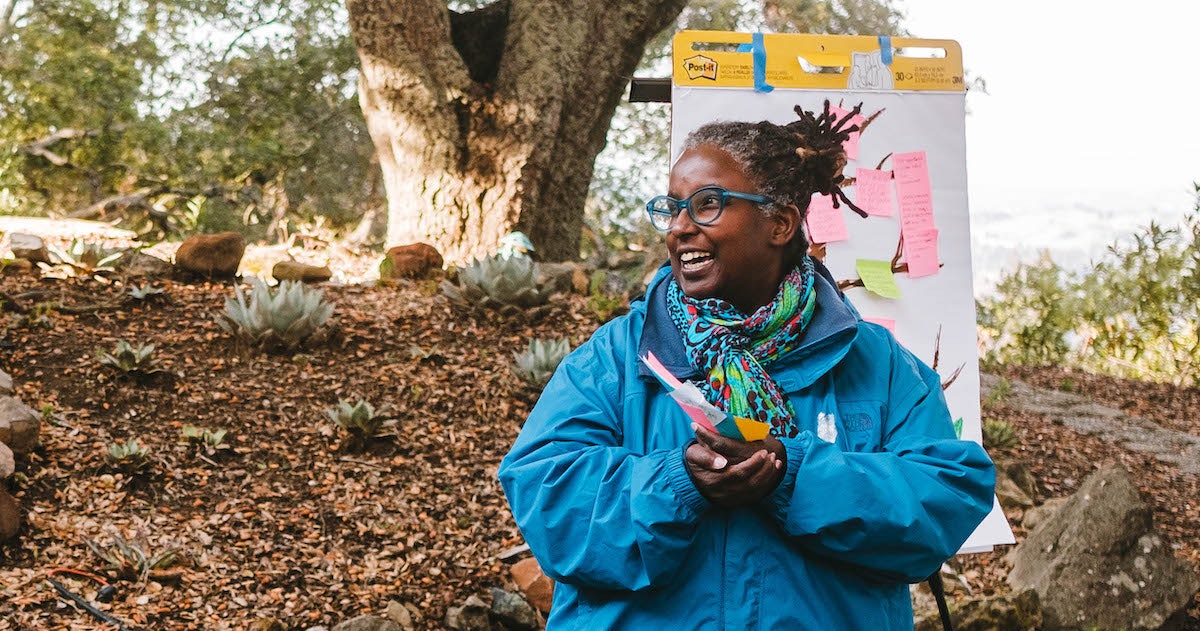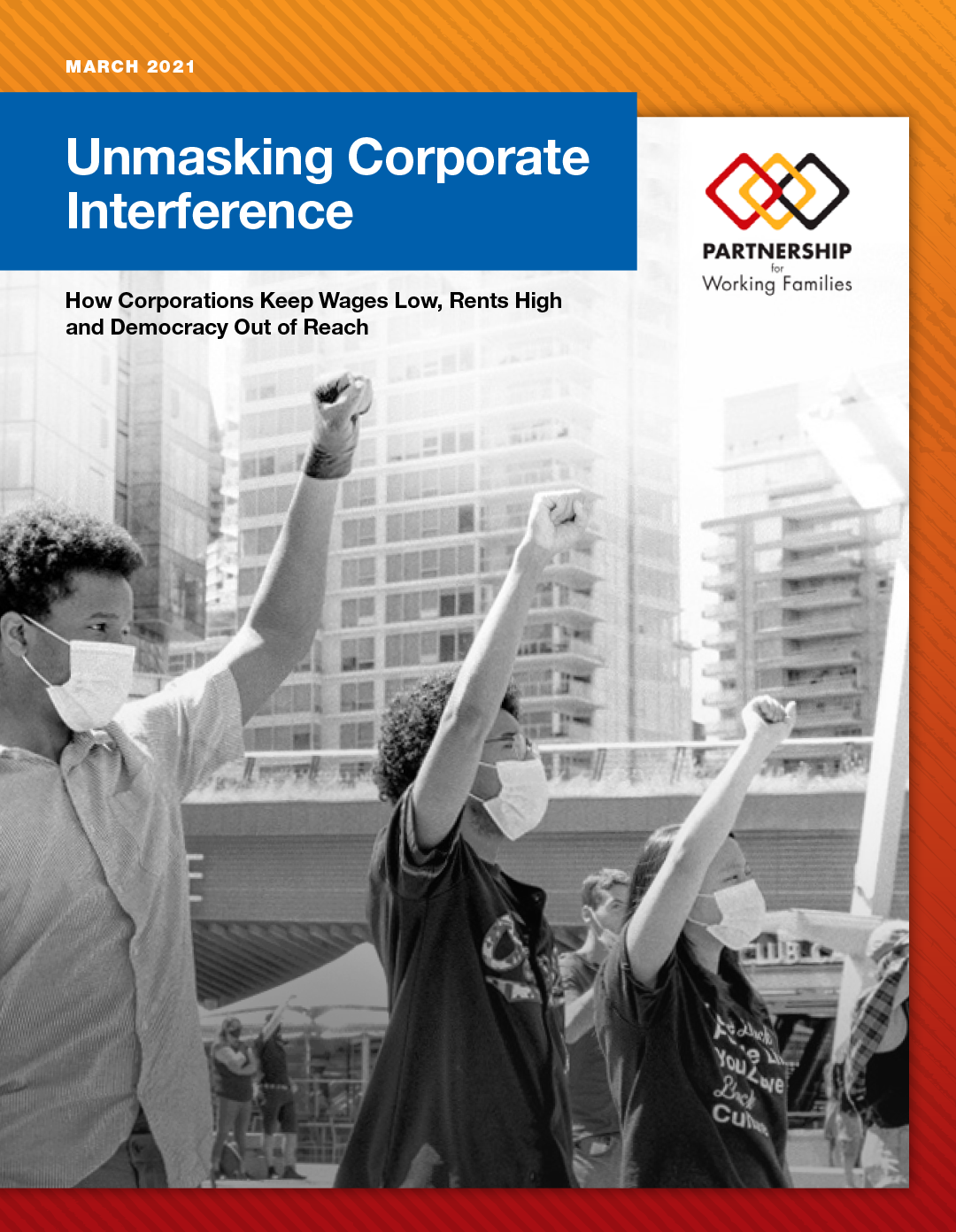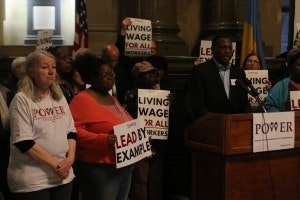Union Square is a vibrant and historically diverse neighborhood of Somerville, a city of 77,000 just north of Boston. It is the commercial center of a primarily residential neighborhood with many restaurants, bars, neighborhood stores, and community institutions. With a population approaching 3,500, it is one of the most diverse neighborhoods in Somerville, with large Brazilian, Latino, South Asian, and white populations, and a mix of lower-income residents and wealthier homeowners. Union Square will be the site of the first station of the Green Line Extension, a much-needed rapid transit expansion intended to mitigate the negative environmental impacts of the Big Dig highway project. Unfortunately, many of Union Square’s residents and small business owners are worried that they won’t be able to enjoy the benefits of new transit, as they are vulnerable to displacement by speculation and rising rents.
In conjunction with the arrival of the Green Line, the City of Somerville is seeking a master developer to oversee the redevelopment of seven key parcels in Union Square. There is projected to be 2.3 million square feet of new development intended to increase the City’s commercial tax base. The local redevelopment authority is in the process of vetting master developer candidates with guidance from a City-appointed advisory committee made up of local business leaders, planners, and other professionals.
Union Square residents and business owners, especially those who are low-income or from immigrant backgrounds, are at greatest risk of displacement. In fact, many have already been displaced. Unfortunately, none of them were chosen to serve on the advisory committee, and there is an overwhelming sense that the neighborhood will be at the mercy of the developer. Community members want to work with the advisory committee and the City to proactively prevent displacement. Affordable housing and homelessness prevention are crucial to maintaining the socioeconomic diversity of the square, along with opportunities for good jobs and other amenities. Residents, business owners, community organizations, and labor unions have joined to form a coalition called Union United that is calling for equity and inclusion in the planning process and aims to ensure that Union Square’s unique social fabric is protected. In the words of Dirce Silva, a local business owner and coalition member, “I’m part of the Union United because I want to learn more about what’s going on, support my community, and grow my business. I went through hard times in Union Square during the economic crisis, and I want to be here for the good times too.”
Since the coalition’s kickoff in May, Union United has held meetings attended by more than 40 coalition members and have begun to craft a community benefits agreement with specific goals for affordable housing, community space and resources, green and open space, participatory planning, public safety, small business protections, and workers’ rights. The coalition decided on a CBA because “we’re looking at this development process through an equity lens,” says coalition member Van Hardy. “The real experts in this situation are the residents, business owners, and workers whose lives and livelihoods are based in Union Square.” They have also rallied in support of small business owners facing rent increases, attended multiple community meetings, and sat down with three of the four developer candidates to share their agenda. The next step is to build alliances with local decision-makers, including City officials and members of the CAC, so that when the master developer is chosen there are many voices in the community calling for a CBA. There is a lot of work to do, but Union United has already come a long way toward creating solidarity, building power, and sharing a narrative of equity and development without displacement.
